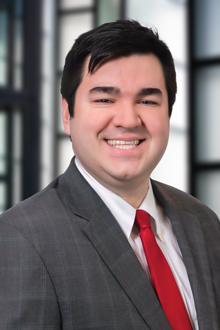Missouri Supreme Court Bars Disclosure of Defendant’s Medical Records

(May 2022) - The Missouri Supreme Court recently addressed whether defendant motor-vehicle drivers may avail themselves of the physician-patient privilege to shield the disclosure of alcohol or drug treatment records from medical providers. Relatedly, the court also addressed whether affirmative defenses denying intoxication constitute a waiver of the privilege. In Barks v. Pelikan, SC 99024 (March 1, 2022)(citation pending), the Missouri Supreme Court held that a defendant does not waive her physician-patient privilege as to medical records including when the defendant asserts an affirmative defense denying that her physical condition proximately caused the plaintiff’s personal injuries in a motor vehicle collision.
In Spencer v. Barks, the defendant, Ms. Barks, was the driver of a golf-cart while the plaintiff, Ms. Spencer, was the passenger in the golf cart driven by Barks. The plaintiff alleged that the defendant negligently operated a golf cart while intoxicated and caused her personal injuries. The defendant denied that she was intoxicated and asserted the alternative affirmative defense that the plaintiff was comparatively at fault and assumed the risk of personal injury by voluntarily riding in a motor vehicle with an intoxicated driver.
During litigation in Spencer v. Barks, the plaintiff sought discovery of the defendant’s medical records from the night of the accident. The defendant objected to the plaintiff’s request and claimed the records were protected by the physician-patient privilege. The circuit court sustained the plaintiff’s motion to compel discovery of the defendant’s’ medical records. The plaintiff successfully filed a petition for writ of mandamus or prohibition in the Missouri Supreme Court prior to the date she was to produce her medical records to the plaintiff. The writ of mandamus or prohibition was heard by the Missouri Supreme Court in Barks v. Pelikan (Judge Pelikan was the Circuit Court Judge who ordered Barks to produce her medical records in Spencer v. Barks).
Mo. Rev. Stat. Section 491.060(5) governs the physician-patient privilege in Missouri. A patient can waive the privilege by either express or implied waiver. A party may expressly waive the privilege by filing a claim for personal injuries. A party may impliedly waive the privilege through an act showing a clear, unequivocal purpose to divulge the confidential information.
The parties agreed that the defendant’s medical records fell within the scope of the physician-patient privilege, but the plaintiff (Spencer) argued that the comparative fault and assumption of risk affirmative defenses waived the privilege. The Missouri Supreme Court rejected this argument and reasoned that the defendant’s assertion of the affirmative defenses of comparative fault and assumption of risk are “involuntary defenses” in nature because the defendant would have waived those defenses if she did not affirmatively plead them. The Missouri Supreme Court then held that it would be “illogical and unacceptable” to require the defendant to choose between waiving her physician-patient privilege or forfeiting her affirmative defenses of comparative fault and assumption of risk.
In addition, the plaintiff (Spencer) advanced a public policy argument that the non-waiver of the physician-patient privilege would be unfair. Specifically, such a broad application of the physician-patient privilege would protect undeserving persons from disclosing records limited in time and scope to the harms allegedly caused as a result of their voluntary intoxication. The Missouri Supreme Court rejected this argument on the basis that Missouri’s physician-patient privilege is governed by statute and the Missouri General Assembly could have chosen to limit the scope of the privilege but did not.
In this case, the Missouri Supreme Court did not distinguish between “affirmative defenses” and “alternative affirmative defenses” in its reasoning. This should provide a warning to practitioners that pleading in the alternative may not provide a safe harbor as it was not part of the court’s privilege and waiver analysis. In addition, the Missouri Supreme Court reached its decision within the existing waiver framework and implied that a defendant could waive the physician-patient privilege when asserting more than a denial and required affirmative defenses to the plaintiff’s allegations. Finally, the Missouri Supreme Court’s holding established a precedent favorable to defendant drivers that physician records are not discoverable when a driver’s alcohol use is put at issue by the plaintiff. Under Barks v. Pelikan, the court’s reasoning may now apply or be expanded to exclude drug tests or alcohol exams administered to defendant-drivers by a physician following a motor vehicle accident.


